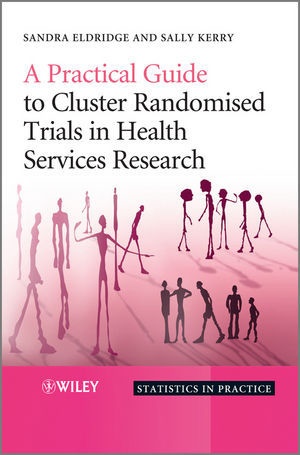En savoir plus
Informationen zum Autor Sandra Eldridge - Senior Lecturer, Medical Statistics, Queen Mary, University of London, UK Dr Eldridge is well experienced in designing and analyzing high quality cluster randomized trials, having worked on ten such trials since the mid 1990s. An award-winning speaker on randomized trials, Dr Eldridge has given numerous presentations in many settings and conferences over the last seven years. Klappentext Cluster randomisedtrials are trials in which groups (or clusters) of individuals are randomly allocated to different forms of treatment. In health care, these trials often compare different ways of managing a disease or promoting healthy living, in contrast to conventional randomised trials which randomise individuals to different treatments, classically comparing new drugs with a placebo. They are increasingly common in health services research. This book addresses the statistical, practical, and ethical issues arising from allocating groups of individuals, or clusters, to different interventions.Key features:* Guides readers through the stages of conducting a trial, from recruitment to reporting.* Presents a wide range of examples with particular emphasis on trials in health services research and primary care, with both principles and techniques explained.* Topics are specifically presented in the order in which investigators think about issues when they are designing a trial.* Combines information on the latest developments in the field together with a practical guide to the design and implementation of cluster randomised trials.* Explains principles and techniques through numerous examples including many from the authors own experience.* Includes a wide range of references for those who wish to read further.This book is intended as a practical guide, written for researchers from the health professions including doctors, psychologists, and allied health professionals, as well as statisticians involved in the design, execution, analysis and reporting of cluster randomised trials. Those with a more general interest will find the plentiful examples illuminating. Zusammenfassung This book addresses the statistical, practical, and ethical issues arising from allocating groups of individuals, or clusters, to different interventions. Inhaltsverzeichnis Preface xiii Notation xv Table of cases: Trials used as examples in more than one chapter in the book xviii 1 Introduction 1 1.1 Introduction to randomised trials 2 1.2 Explanatory or pragmatic trials 2 1.3 How does a cluster randomised trial differ from other trials? 3 1.4 Between-cluster variability 9 1.5 Why carry out cluster randomised trials? 10 1.6 Quality of evidence from cluster randomised trials 13 1.7 Historical perspectives 16 1.8 Summary 18 References 19 2 Recruitment and ethics 22 2.1 Selecting clusters and participants to enhance external validity 22 2.2 Ethics of cluster randomised trials 24 2.3 Selection and recruitment of participants to enhance internal validity 35 2.4 Retention of participants in the trial 41 2.5 Summary 41 References 41 3 Designing interventions 44 3.1 Lack of effectiveness of interventions evaluated in cluster randomised trials 45 3.2 What is a complex intervention? 46 3.3 Phases in the development of a complex intervention 50 3.4 Identifying evidence for potential intervention effect (pre-clinical phase) 50 3.5 Understanding more about intervention components (modelling phase) 53 3.6 Developing the optimum intervention and study design (exploratory trial phase) 55 3.7 What is the intervention? 57 3.8 Summary 58 References 58 4 Pilot and feasibility studies 60 4.1 What is a pilot study? 60 4.2 Re...

